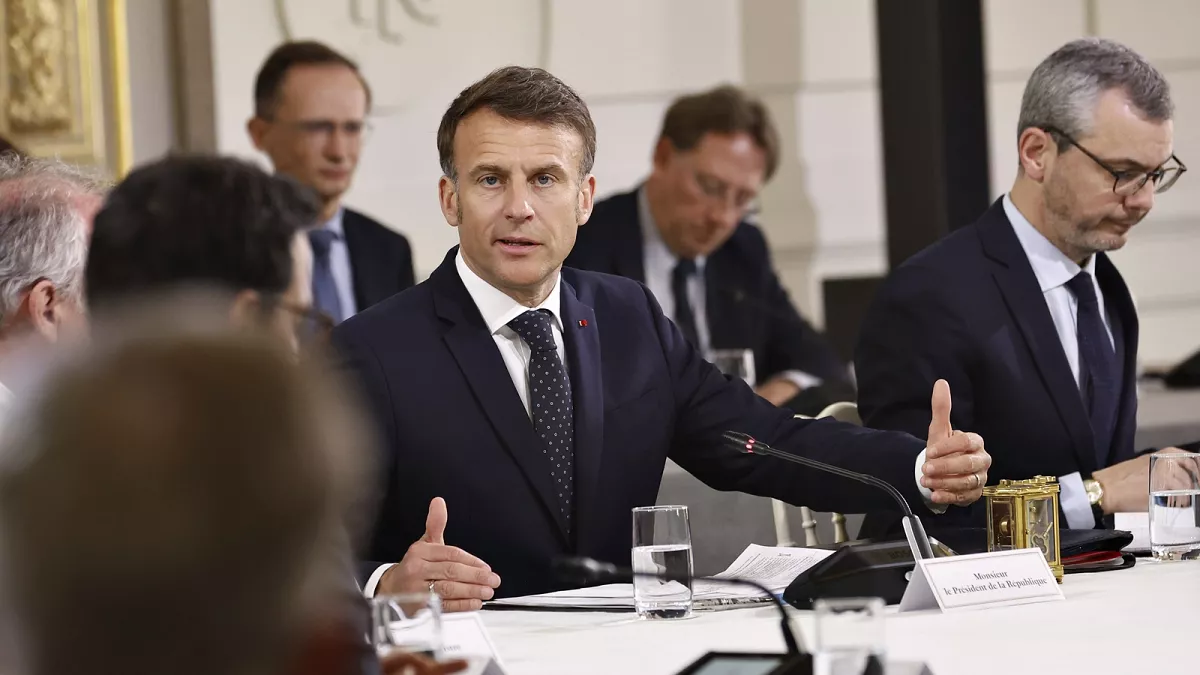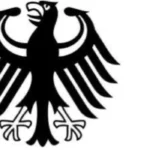During a visit to Cairo on Tuesday, French President Emmanuel Macron publicly expressed hope that U.S. President Donald Trump would reverse his decision to impose widespread tariffs. This appeal came as Trump’s administration defended its new trade measures, asserting that the policy is already yielding results. Despite global concern, European stock markets closed higher, signaling cautious optimism about possible negotiations.
Macron’s Call for Diplomacy
Emmanuel Macron emphasized the need for constructive dialogue and de-escalation. Speaking from Egypt, the French president stated, “The goal is to reach a point where President Trump reconsiders his decision.” Macron stressed that France and Europe have never sought chaos, adding that if showing readiness to respond is necessary to initiate talks, Europe must be prepared to do so.
Read Also: Report: UAE Leads a Campaign Against Qatar Using Paid African Organizations
Trump Administration Defends Tariffs
In Washington, White House trade representative Jamieson Greer testified before the U.S. Senate Finance Committee, defending the tariff policy. He claimed that nearly 50 countries had already reached out to discuss trade arrangements under Trump’s new approach. Greer cited automotive companies increasing U.S. production as a sign that the tariffs are achieving their intended effect.
He also noted that countries such as Argentina, Vietnam, India, and Israel are considering lowering their own tariffs in response. These developments were presented as evidence that Trump’s global tariff strategy is prompting a shift toward “fairer” trade.
International Leaders React
Meloni Plans U.S. Visit
Italian Prime Minister Giorgia Meloni announced that she will visit Washington on April 17 to discuss the tariff situation directly with President Trump. She emphasized the importance of addressing the issue face-to-face in order to protect European economic interests.
UN and China Sound Warnings
UN Secretary-General António Guterres voiced his concerns, declaring that “no one wins a trade war.” Meanwhile, China warned the United States against applying pressure and threats, stating it would not back down in the face of what it termed “economic bullying.” China’s Premier Li Qiang insisted his country has enough policy tools to counteract the economic impact of the trade conflict.
Economic Impact and Market Response
Markets Rebound on Hopes of Dialogue
Global markets reacted with cautious optimism. The Paris stock exchange rose by 2.5%, Frankfurt by 2.48%, London by 2.71%, and Milan by 2.44%. These gains followed three days of losses reminiscent of the 2020 COVID-19 market crash. Investors interpreted Washington’s openness to negotiation as a possible turning point.
Wall Street mirrored this trend with a strong opening: the Dow Jones jumped by 3.66%, Nasdaq by 4.27%, and S&P 500 by 3.82%. Analysts noted that hopes of trade talks between the U.S. and Japan helped bolster investor confidence.
Asia-Pacific Markets Recover
Tokyo’s Nikkei index rebounded by 6.02% following an 8% plunge the previous day. Other markets in the region, including Seoul, Sydney, and Shanghai, also experienced positive momentum.
Rising Global Diplomatic Tensions
Malaysia and ASEAN Respond
Malaysia announced that it would send a delegation to Washington for tariff discussions. Prime Minister Anwar Ibrahim emphasized a diplomatic, non-confrontational approach, advocating for a united ASEAN response.
Europe’s Political Discontent
In France, left-wing party La France Insoumise labeled Trump’s actions an “imperialist offensive.” Lawmaker Aurélie Trouvé criticized the French government’s muted response and warned of inflation hitting vulnerable populations hardest.
French Agriculture Minister Annie Genevard also criticized the idea of relying on Mercosur trade deals to resolve the issue, arguing that it would add instability rather than help key French industries.
Singapore Voices Disappointment
Singapore’s Prime Minister Lawrence Wong lamented the new tariffs, stating that such actions are not how friends treat one another. Despite a long-standing free trade agreement with the U.S., Singapore was hit with a 10% tariff and may lower its 2025 growth forecasts as a result.
EU’s Next Move
The European Commission announced that it could unveil its countermeasures to Trump’s tariffs early next week. A spokesperson confirmed that preparations are underway, signaling the EU’s intent to defend its economic interests.
This article is originally published on: cnews









